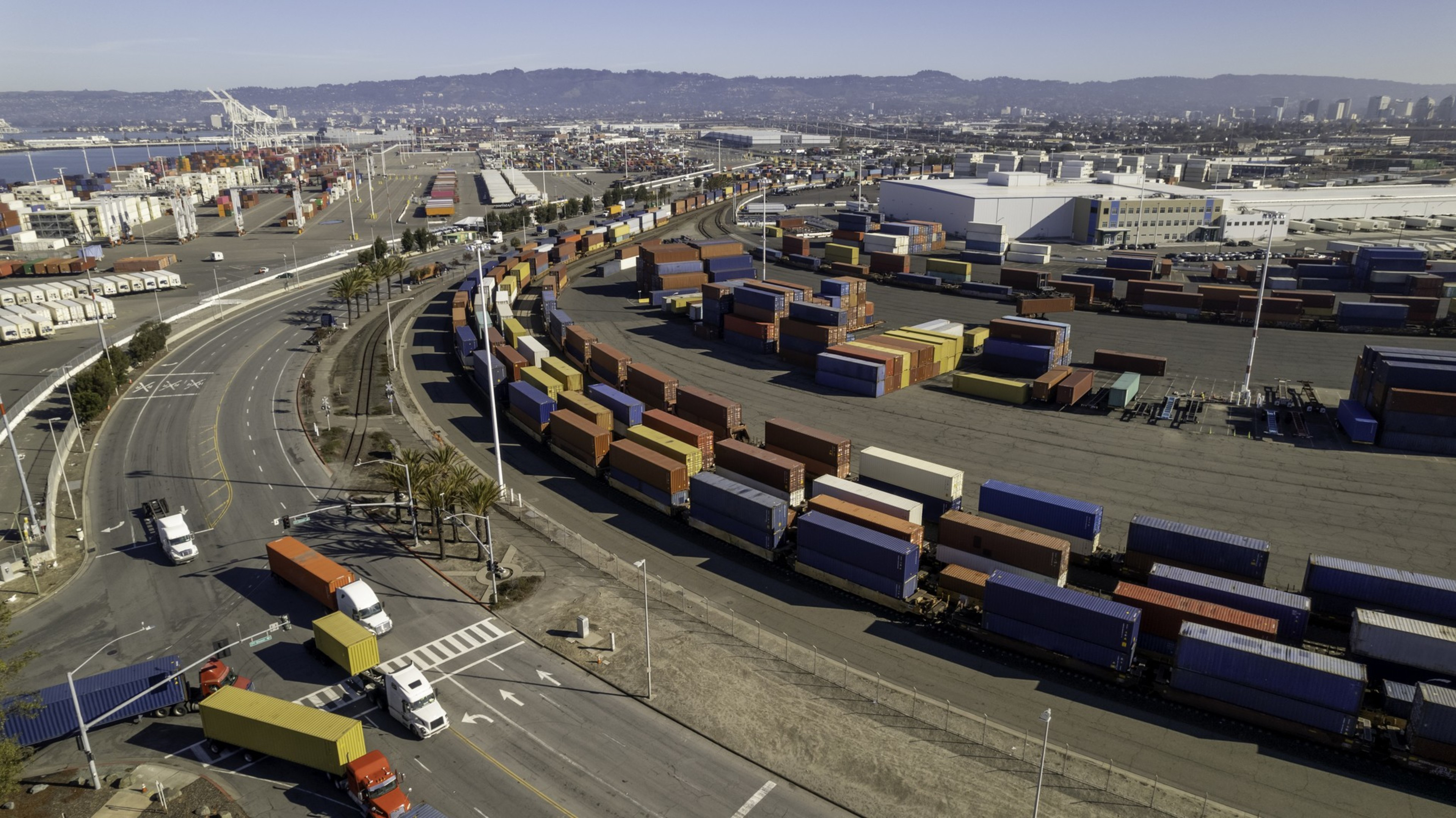Bill Aboudi has noticed some changes to his view at the 15-acre truck parking and services facility (opens in new tab) he runs near the Port of Oakland: Lately, he’s spotted more gaps in the colorful walls of shipping containers that line the city’s coastline.
As President Donald Trump’s trade war threatens businesses and consumers with higher prices on imports, truck drivers responsible for ferrying products around the country are on the front lines. And they’re stressed out.
“We’re getting caught in the crossfire,” Aboudi said. “Everyone’s just trying to hold on for the ride.”
Imports at the Port of Oakland ticked up 9% in March (opens in new tab); experts attribute the rise to a buying rush in anticipation of higher fees. Now that tariffs are in place, a downturn could have major consequences on tens of thousands of port jobs and the economic stability (opens in new tab) of the region. China makes up 29% of the port’s trade volume (opens in new tab) and is its top import partner, so sky-high fees could grind customers’ orders — and the port’s interlocking ballet of business — to a halt.
Aboudi and his associates fear that such a freeze is on the horizon. The expected cargo capacity of ships (opens in new tab) coming from Asia to the West Coast has dropped, while the amount of “blanked” capacity — scheduled loads that get canceled — is rising.
Typically, he has about 125 orders on the water at any given time that his firm, which runs eight trucks, will transport upon arrival. In the past few weeks, that has plunged by more than 70% to around 30. The team typically completes around 10 local deliveries a day but now is scraping together two or three. He has sent staff home early nearly every day for a week.
“We’ve just been doing whatever we can to stay alive and stay afloat,” he said, noting that the trucking tenants of his parking facility, Oakland Maritime Support Services (opens in new tab), are also experiencing downturns. “When you don’t know, week to week, what’s going on, truckers feel the pinch.”
While many companies made a rush to buy overseas products ahead of the latest tariffs, there’s likely to be a big drop in imports, according to supply chain logistics platform Flexport. The firm has seen 60% of its customers either pare back import bookings or stop orders entirely.
“It’s really a substantial change in how people are behaving,” said Henry Ogilby, the director of operations.
The stalled imports will have a ripple effect on trucking companies and the rest of the supply chain. Flexport CEO Ryan Petersen has described it as “a strange time in the logistics world (opens in new tab)” and said there could be a $2 trillion hit (opens in new tab) to U.S. economic activity if tariffs on goods from China “continue at this level.”
The company has been regularly posting bulletins and hosting webinars to keep its clients apprised of the latest (and frequently shifting (opens in new tab)) updates (opens in new tab) on trade policies. So many people tried to join one recent tariff-related webinar that the hosting platform crashed.
All of this boils down to “queasiness,” for truckers, according to Joe Rajkovacz, the former head of Western States Trucking.
While he retired late last year from the trade group, he’s still hearing from industry contacts who are feeling beat down by the geopolitical uncertainty. “Port trucking is already seeing the fallout,” he said. Smaller “spot market” players that pick up overflow business from contracted trucking companies are “being hurt the most,” he added.
For example, one of Aboudi’s tenants at his service facility is planning to furlough some drivers this week.
As the trucking industry already faced a severe driver shortage (opens in new tab) (which could soon get worse (opens in new tab)), a rash of layoffs could have a lasting impact, Aboudi said. He compared the effect of furloughs to that of a cheating spouse: If the trust in a relationship is lost, it’s hard to recover. A laid-off worker might leave the industry entirely. “We’re depleting our good driver pool,” he said. “Once you lose them, you’re not going to get them back.”
He’s trying to stay positive that the U.S. and China will settle on less aggressive tariff policies.
“We just hope that these guys will get with it soon and stop playing games with our livelihoods,” Aboudi said. “We’re not laying off our guys yet, but if I can’t make payroll, what can I do?”
